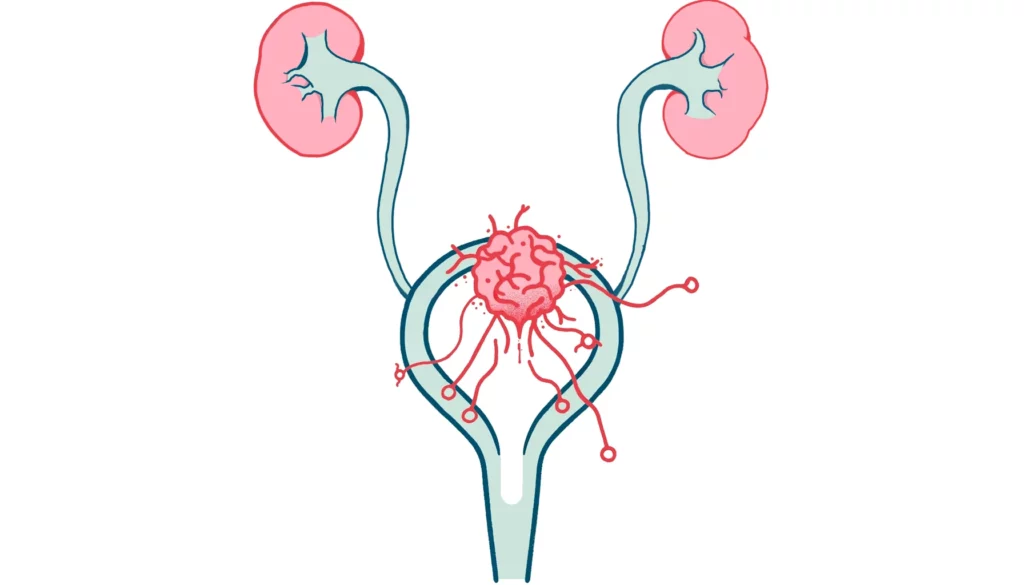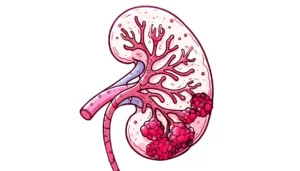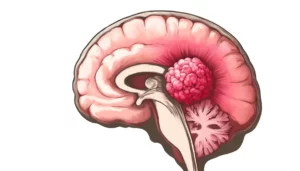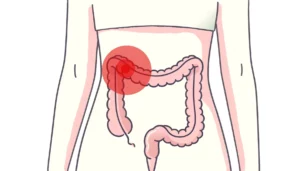
Case study on how fenbendazole eradicated bladder tumors in two months. Bladder cancer is the most frequently diagnosed cancer of the urinary system. A study by Saginala et al. (2020) found that bladder cancer makes up 3% of all cancer cases worldwide. It is more common in developed countries.
In the United States alone, bladder cancer is the sixth most common type of cancer.
- The vast majority (90%) of bladder cancer diagnoses occur in the 55+ age group.
- Men also bear a much heavier burden, with a rate of occurrence 400% higher than women.
- On average, the age at which bladder cancer occurs is 73 in the U.S.
While the 5-year survival rate stands strong at 77%, that figure falls to 5% once the cancer has metastasized at detection. Early identification is key to driving those odds upward. By far the greatest risk factor linked to bladder cancer is the use of tobacco products, which research shows plays a role in approximately half to two-thirds of all cases.
Estimates from the American Cancer Society found that 83,192 US adults will receive a bladder cancer diagnosis in 2024, over 63,000 men and close to 21,000 women. Men face a significantly higher risk, with statistical data showing their likelihood of a diagnosis is approximately four times that of women.
The Patients Journey: Eliminating Bladder Tumors with Fenbendazole Alone

This is the case study of a 68-year-old woman who used only Fenbendazole for two months to get rid of her bladder tumors. She didn’t do any other traditional cancer treatments.
2021: Surviving C. diff, A Two-Year Battle and Recovery from a Life-Threatening Infection
Back in 2021, she was put on an antibiotic for a staph-infected cyst. Unfortunately, that medicine gave her a C. diff complication in April, and it came back again in August. During that awful time, she lost 20 pounds and really struggled. Now, over two years later, she’s thankful to finally be putting some weight back on after such a rough battle.
Clostridioides difficile, commonly referred to as C. difficile or C. diff, is a bacterium that leads to infection of the colon. Symptoms range from heavy diarrhea to potentially life-threatening complications involving the large intestine.
2023: Dilemma with Antibiotics, Surgery, and the Fear of C. diff Recurrence
In August 2023, she got a UTI (urinary tract infection), so the doctor prescribed an antibiotic. The woman was worried that the C. diff infection might come back like before. She lost another 5 pounds too and had really bad stomach pains from the medication. They brought her to the ER (emergency room) because it hurt badly, and they did a CT scan to check on things.
The tests found two small tumors in her bladder that might be cancer. The doctor sent her to a urologist for a check. The cystoscopy saw two small tumors near the bladder opening. The urologist said he would take the tumors out in surgery. She went to the hospital early in September 2023 for the operation.
The nurses said they were going to give her an IV of antibiotics during the operation. That really worried her because she knew what happened before. When the Urologist came in, she told him if she took those IV antibiotics, it would give her C. diff again and it could kill her this time.
The nurse said it was a risk they had to accept. But the woman didn’t agree; it wasn’t worth it to her. The urologist told her that he wouldn’t do the surgery if she didn’t take the antibiotics. The woman understood the position of the doctor, but she just couldn’t risk getting that sick again. So, she got dressed and went home instead of doing the operation that day.
Fenbendazole Success: Her Choice Eliminates Bladder Tumors Without Surgery

The woman had already bought some Fenbendazole because she planned to use it to get rid of parasitic worms. She started taking Fenben on September 7th. Plus, the woman found a different Urologist and asked him to do another cystoscopy since she has been using the Fenben for over two months.
But the Urologist said no to the test and just wanted to do the surgery. That didn’t seem right to her, so she decided to find a new primary doctor. Her new primary doctor seemed more willing to listen.
The doctor ordered a CT scan before surgery that her second Urologist scheduled. The CT scan performed on November 9th showed that the tumors were gone. So she cancelled the surgery again. Now the surgeon has agreed to a bladder examination.
Three Months Later: She Cancels Surgery After Tumors Disappear
The cystoscopy was performed on December 15th. The woman watched the entire thing; at no time did the surgeon point out any tumors, and she did not see the two that showed on the previous test. After a few seconds, the surgeon said, “Oh, there is a fuzzy spot that could be cancer.”
Weirdly, that is exactly where the first tumors were located. Again, the Urologist suggested surgery with an antibiotic. At no time did the surgeon take a biopsy. So the woman had no idea what type of cancer she had.
The new doctor wanted her to get a CT scan before the operation that the second Urologist had planned. This time, the CT on November 9th showed the lumps were gone. The woman called off the surgery again.
Questions and Answers
Q: What dose and brand of Fenben did you use? Any side effects?
A: My regime was as follows:
- I used Fenben Labs Fenbendazole 222mg capsules (1 capsule per day with a fatty meal).
- I started out using this 3 days a week.
- Then, for no special reason, I went four days per week for Fenbendazole. This is what I continue to do every week.
- I also take some supplements to help build my immune system.
Keep in mind that my cancer was discovered while the tumors were quite small, and I did not have any symptoms of the cancer. I had no side effects from either drug. But within 2 months, the tumors were gone.
Q: What is your age and body weight? Other than what you mentioned, did you have any other symptoms, such as blood in your urine or pain?
A: I am 68 years old, and due to the antibiotics I had to take for the cyst and the UTI, I went from a healthy 127 lbs. down to 102 lbs. My height is 5″4″. The antibiotic I had to take for the UTI set me back, so I am still struggling to gain some weight back, but I am holding my weight steady. To be honest, trying to recover from C. diff is more difficult than treating the cancer.
The doctors cause C.diff by prescribing antibiotics but have no idea how to treat c.diff. I saw gastroenterologists, and neither one was any help in trying to get my colon back to somewhat normal.
Q: So, they never took a biopsy but ruled it cancer and recommended surgery?
A: Yes, no biopsy was performed; just surgery was recommended. The Urologist who did the first examination took one look and just blurted out that you have cancer.
Q: How do others respond when you tell them about your success with Fenbendazole?
A: My friend and my experience informing others about Fenbendazole, whether they have cancer or their relatives have cancer, has not been very encouraging.
They either laugh at us or tell us we are crazy. They will not even take the time to research. Consequently, we have stopped informing people unless they ask for advice.
Q: Did you tell the doctor you were taking Fenbendazole?
A: I did tell the Urologist who did the second cystoscopy that I was already taking Fenbendazole. So, I’m sure he does not want to admit that my protocol worked. When I told him, there was no reply.
The Urologist who was going to do the first surgery mentioned taking an antiparasitic drug for the cancer. She replied that we were not here to talk about that. She was very defensive about my wanting to discuss that.
I know I will have to take the Fenbendazole for the rest of my life, but I’m 68, so what the hell difference does it make?
Summary

Having previous knowledge helps a lot, especially during hard times. After taking Fenbendazole for two months (222 mg each day, four days a week), the cystoscopy found that her tumors had vanished.
She was supposed to get an operation to remove the tumors, but the woman knew the IV antibiotic used in surgery could very likely give her the C. diff infection again.
So instead of risking that happening in surgery, she chose to keep addressing it herself using just the Fenbendazole protocol.
Another Experience With Fenbendazole
We also heard about another person helped by Fenbendazole. A relative of one of the writers here gave her husband 222 mg of fenbendazole every day after doctors said for sure he had invasive bladder cancer that had spread. Amazingly, in just two months, the cancer went away completely without any regular medical treatments.



